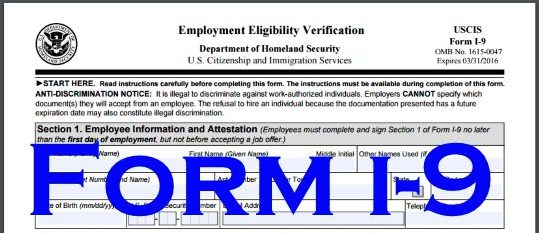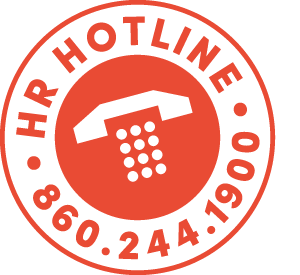HR Hotline: Do We Need to Complete Form I-9 for an Unpaid Intern?

Q: Do we need to complete Immigration Form I-9 for an unpaid summer intern? And if we do, are there any special concerns or procedures to follow with an intern who is under 18 years old?
A: In general, Form I-9 is not required for unpaid individuals unless they will receive something of value in exchange for their labor or services, also referred to as remuneration.

Determining if the person is to receive any remuneration is not always a simple matter, as remuneration can come in many forms besides cash, including meals, lodging and other benefits that may be paid to, or on behalf of, the employee, and which are clearly understood to be compensation for services.
The U.S. Department of Labor identifies some items that may be excluded from wages and not counted as remuneration, particularly where the amount or value is not measured by or dependent on hours worked, production, or efficiency.
Examples of items that won’t count as wages or remuneration are sums paid as gifts, payments for the rental of a worker’s car or truck, loans, or the cost to the employer of conveniences furnished to the employee such as parking space, restrooms, lockers, on-the-job medical care, and recreational facilities.
Form I-9 and Minors
Where a Form I-9 must be completed, doing so for a minor raises some unique issues, since a minor, by definition, is not “legally competent” to sign a formal attestation, such as Form I-9.
Because this is a fairly common situation, the U.S. Citizenship and Immigration Services actually includes instructions for completing Form I-9 for a minor in the USCIS I-9 Handbook for Employers.
The minor’s parent or legal guardian should complete Section 1 and enter “Individual under age 18” in the signature block (“Signature of Employee”).
The parent or legal guardian should then complete the Preparer and/or Translator Certification block.
For completing Section 2 of Form I-9, if the minor produces a U.S. passport or other acceptable List A document to establish identity and employment authorization, that document should be noted, and the employer representative may fill out the rest of Section 2 as usual.
If a List A document is not produced and the minor is unable to present one of the more common List B Identity documents, such as driver’s license, government ID card, voter registration card, or U.S. Military card, the instructions note these alternate documents as acceptable for a minor for identity purposes: school record or report card; clinic, doctor, or hospital record; or daycare or nursery school record.
If the minor cannot produce a suitable List B Identity document, it would be permissible to enter “Individual under age 18” in the “Document Title” block under List B, and then enter whatever suitable List C document is presented to establish employment authorization, most often a Social Security card.
It’s summertime, and the living may be easy, but it’s no time to be casual or careless when it comes to I-9 documentation and employment of minors.
HR problems? Email or call Mark Soycher at the HR Hotline (860.244.1900) | @HRHotline
RELATED
EXPLORE BY CATEGORY
Stay Connected with CBIA News Digests
The latest news and information delivered directly to your inbox.


